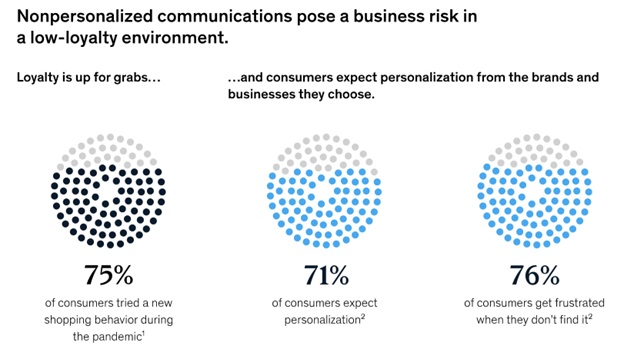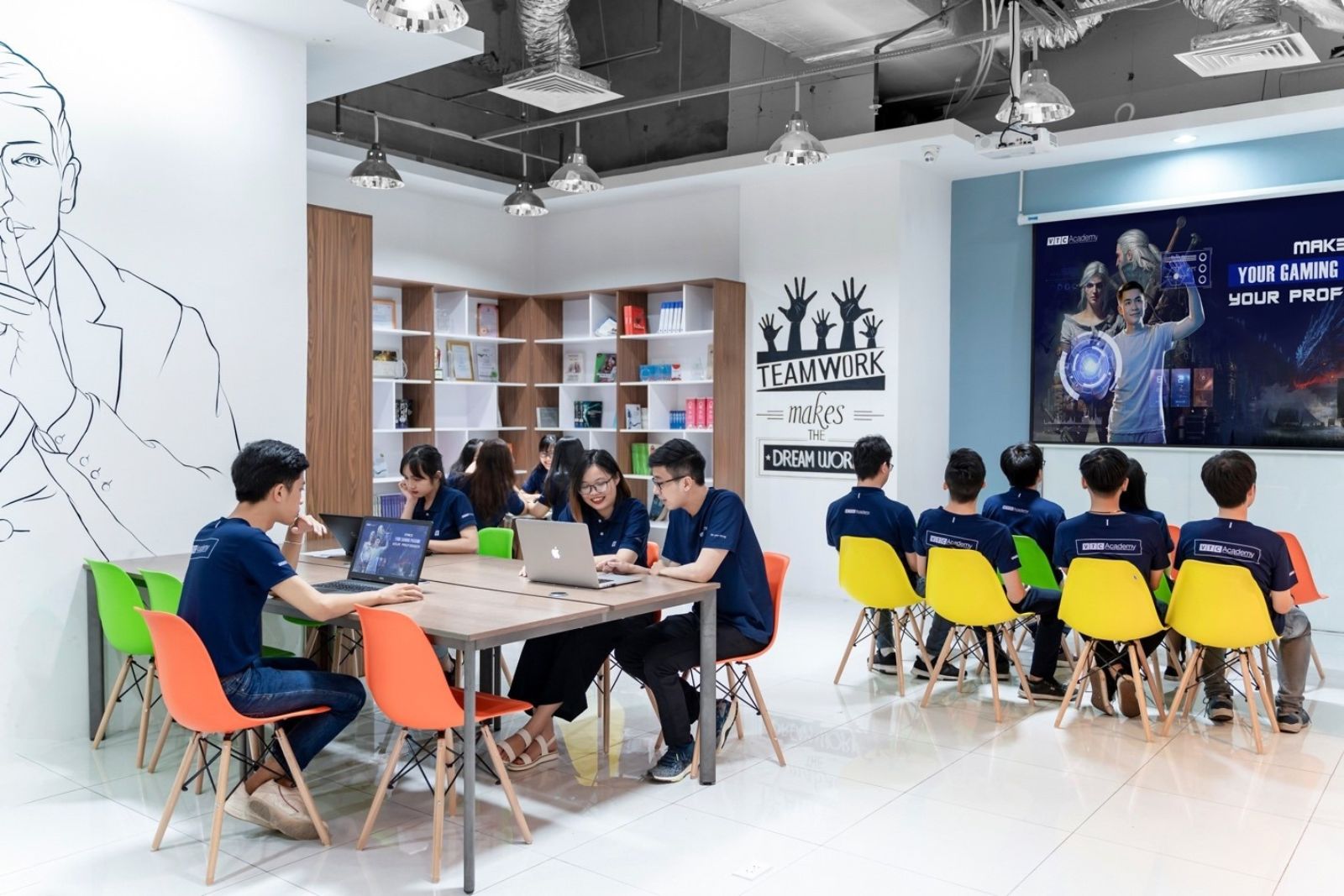The business landscape in 2024 is subject to numerous influential factors, including technological advancements, economic conditions or environmental concerns… With the ascent of technology and generative AI in 2023, businesses and employees now are facing a question: how to use AI for business to be more proactive towards upcoming changes.
Adapting to Generative AI
Generative AI tools are advancing rapidly, offering solutions to enhance efficiency across all industries. However, understanding the limitations and discerning where human creativity, compassion, and innovation are still indispensable is crucial.
While AI can handle routine, repetitive, and data-intensive tasks more efficiently than humans, it is unlikely to completely replace all human jobs. Instead, it is more likely to augment and transform job roles, freeing up human workers to focus on tasks that require creativity, emotional intelligence, critical thinking, and complex problem-solving. The collaboration between humans and AI is expected to create new opportunities and skills that complement AI capabilities.
The impact of AI on employment depends on various factors, including the rate of technological adoption, regulatory frameworks, and societal responses to workforce changes. To remain competitive in rapidly evolving industries, consider these four pivotal points for attention in 2024 and beyond.

1. Higher Level of Information Technology
Despite recent mass layoffs in the tech industry over the past year, tech roles are still ‘the most in-demand’ in most businesses. In fact, it is a vital and dynamic field that supports and drives innovation in various sectors of the economy. They also require a higher level of technical skills, education, and experience, as well as the ability to adapt to the changing needs and trends of the industry.
According to Insight Global, there are some of the fastest growing and most in-demand tech jobs for 2024: Artificial Intelligence Developer, AI Engineer, DevOps Engineer, Cloud Engineer, Cybersecurity Analyst, AR/VR Developer, Data Analysts Scientist, Web Designer… Of course, these are just a few examples, and the tech job market is always evolving. It’s important for professionals to stay up to date with the latest trends and technologies to help business success catch up with the market.
2. New Marketing strategies
Digital marketing is constantly evolving and adapting to the changing needs and preferences of consumers, as well as the technological innovations and developments that enable new ways of reaching and engaging with them. AI gets smarter, traditional digital marketing must be rewritten.
Some of the factors that influence the trends and directions of digital marketing are the growth of online and mobile users, demand for more personalized, relevant, and convenient experiences from brands. On the other hand, the rise of AI and machine learning enable smarter and more efficient data analysis, targeting, personalization, automation, and optimization of digital marketing campaigns and activities.
Omnichannel marketing is also promising with the integration and coordination of multiple channels and platforms to provide a consistent and seamless customer journey. Or video marketing, especially short videos, are becoming more and more powerful with the rise of TikTok and other social media. In this tough time, it might be the right time for companies to use the power of videos to communicate, educate, entertain, or persuade potential or existing customers.
3. Personalized Customer service
Adapting customer service strategies to incorporate AI can lead to more efficient operations, improved customer experiences, and a competitive edge in the ever-evolving business landscape.
AI-powered systems can handle routine and repetitive tasks more efficiently than humans. Customer service teams can leverage AI to automate processes, allowing human agents to focus on more complex and value-added tasks. With 24/7 availability, this also ensures that customers can get assistance at any time, leading to improved customer satisfaction and loyalty.

Moreover, research by Epsilon and GBH Insights found that the vast majority of respondents (80%) are interested in making purchases when offered personalization from retailers. Personalization is now a hygiene and customers increasingly expect businesses to adopt the latest technologies regardless. Therefore, a right change in customer experience will lead to more meaningful interactions and a higher likelihood of customer retention.
4. Revolution in supply chain management
The supply chain landscape is undergoing a transformative shift due to advancements in technology. With rapidly evolving capabilities in generative AI, data analytics, automation, machine learning, Internet of Things (IoT), blockchain, and more, the era of the ‘smart’ supply chain is fast becoming the new standard.
Companies have been embarking on a journey of digitizing their supply chains for many years. But in fact, many companies have not completely digitized their supply chain operations. Consequently, they miss out on the substantial benefits and return on investment that complete digitization can offer. In 2024, more companies will look to obtain greater value and insights from the data being exchanged across their business ecosystem.

Supply chains are a huge part of the problem when it comes to emissions (estimated to be about 70% for most companies, according to Forbes), circularity, and inequality, and are therefore a great area to focus on when looking for solutions.
In 2024, KPMG anticipated a surge in the adoption of Generative AI solutions, particularly Conversational AI solutions, within the supply chain sector in 2024. Businesses, regardless of size, will have the ability to engage in a ‘conversation with a business network,’ seamlessly connecting their internal systems with external trading partners. This shift is poised to expedite supplier onboarding processes and optimize logistics flows. Conversational AI’s impact extends from enhancing inventory management to streamlining payment processes between parties, fundamentally altering the way users interact with their business networks.
In Conclusion:
In order to successfully adapt to a changing world, companies should adopt a proactive and agile approach. Embracing innovation and staying abreast of emerging technologies is paramount. Companies must foster a culture of continuous learning and encourage employees to develop new skills, enabling them to navigate evolving landscapes. Remember, high-quality labor is a fundamental asset for companies aiming to thrive in today’s competitive business environment. Investing in recruiting, developing, and retaining skilled and motivated employees can lead to improved performance, innovation, and overall success.
At VTC Academy, nurturing young talents to meet the requirements of the rapidly changing market is a big challenge, and also a chance to create a high-quality workforce that will help businesses thrive in the digital era. Through tailored training programs and partnerships with leading companies, VTC Academy not only prepares students for the demands of the modern workplace but also acts as a bridge between educational excellence and industry needs. This foresight enables VTC Academy to not only foresee the impending challenges in the labor market but also actively contribute to solving them by producing a workforce that aligns with the technological demands of today’s businesses.











